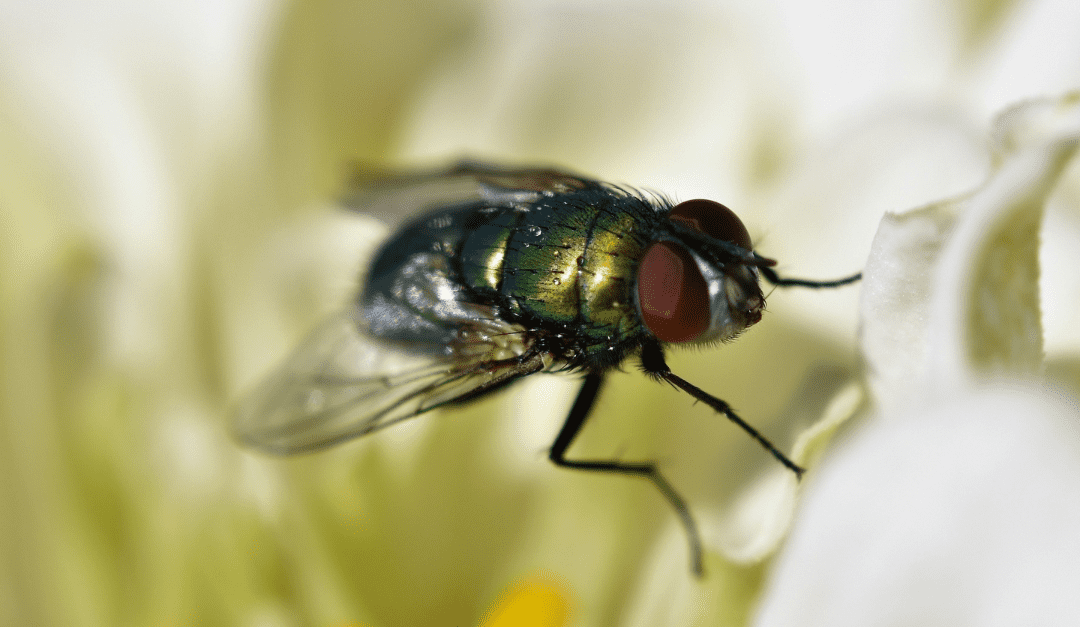READY TO GET STARTED?
REQUEST A FREE ESTIMATE
Fill out the form below or call (336) 226-1448 for a free, no-obligation estimate.

Flies are more than just a buzzing nuisance—they can spread germs and interrupt your daily comfort. North Carolina’s warm, humid climate creates ideal conditions for flies to thrive, especially in the spring and summer. The good news? With a few practical steps, you can prevent them from taking over your space. Here are straightforward prevention tips to help keep flies out of your North Carolina home.
North Carolina’s heat and humidity accelerate fly reproduction, making infestations more likely during warmer months. Outdoor activities like grilling, gardening, and composting increase the chance of fly exposure, especially when food or waste is involved.
Flies are drawn to smells, moisture, and food sources. Reducing attractants is the first line of defense.
Small gaps in your home can become open doors for flies. A few quick checks can reduce entry opportunities.
You can make your home less appealing to flies using items already in your pantry or cabinets.
Your outdoor environment plays a major role in keeping flies away from your home’s entrance.
Preventing flies from gathering around your porch or patio helps reduce the number trying to come inside.
Sometimes, even the best prevention efforts aren’t enough to keep flies out. If you’re experiencing:
…it may be time to bring in a professional. Reach out to a local pest control provider in North Carolina who can assess the situation and recommend a targeted solution based on your home’s needs.
To help prevent flies in and around your North Carolina home:
If flies continue to be a problem despite your efforts, call your local pest control team for expert support.

North Carolina’s warm, humid climate often invites flies into homes, creating a frustrating problem. Thankfully, you can significantly reduce the risk of fly infestations with these five practical steps.
Flies are drawn to food and waste, so maintaining cleanliness is crucial.
Flies can slip through even the smallest cracks.
Outdoor breeding grounds often lead to indoor fly issues.
Target what draws flies in to make your home less inviting.
When flies persist, add extra measures to stop them.
By combining cleanliness, proper sealing, and proactive outdoor maintenance, you can create an environment that flies find hard to thrive in. Take these steps to keep your home more comfortable and pest-free! Reach out to your local pest control company for expert tips.
Call us or click the button below to get started with a FREE pest control quote!

Flies are one of the most common pests found in homes. They are not only annoying but can also carry harmful bacteria and diseases. Fortunately, there are several things you can do to prevent them from entering your home in the first place. Let’s discuss three different types of flies you might find in your North Carolina home and some tips on how to prevent them.
House flies are the most common type of fly found in homes, hence the name. These pests are typically gray in color and measure around 1/4 inch in length. They are attracted to rotting food, garbage, and other organic waste, and they can carry diseases like salmonella and E. coli.
To prevent house flies from entering your home, it’s important to keep your kitchen and living areas clean and free of food waste. Keep your garbage cans tightly sealed and dispose of trash regularly. Make sure to clean up any spills or crumbs immediately and avoid leaving food out on counters or tables.
Fruit flies are small, brownish-yellow flies that measure around 1/8 inch in length. They are commonly found in kitchens and are attracted to ripe or rotting fruit and vegetables. These pests are not harmful to humans, but they can be very annoying.
To prevent fruit flies from infesting your home, it’s important to keep your fruit and vegetables stored in the refrigerator or in sealed containers. Be sure to dispose of any overripe or rotting produce and keep your kitchen clean and free of spills and crumbs.
Drain flies, also known as moth flies, are small, black flies that measure around 1/8 inch in length. They are commonly found in bathrooms and kitchens, and they are attracted to damp, organic matter like hair, soap, and grease. Drain flies can carry harmful bacteria, so it’s important to get rid of them as soon as possible.
To prevent drain flies from taking over your home, it’s important to keep your drains clean and clear. You can do this by pouring a mixture of baking soda and vinegar down your drains, followed by hot water. Avoid pouring grease or oil down your drains, and fix any leaks or drips that may be contributing to excess moisture.
If you begin to notice flies in your home, be sure to take action quickly to get rid of them by calling your local pest control company for a free inspection.